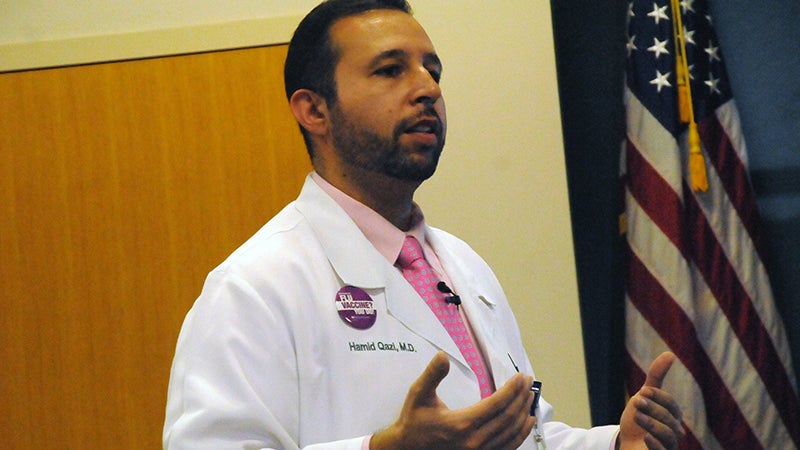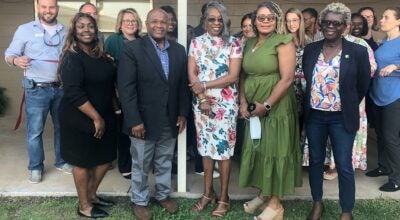Second ‘Medical Matters’ talk focuses on women’s health
Published 6:10 pm Friday, October 4, 2019
The Selma-Dallas County Public Library hosted its second “Medical Matters” talk Friday with University of Alabama – Birmingham (UAB) Selma Family Medicine Center Assistant Chief Resident Dr. Hamid Qazi.
The talks, which are hosted on the first Friday of every month through the end of the year, are aimed at providing locals with information on a variety of health topics, including flu season, emotional wellness and other topics.
“This is about bringing good health to all of us,” said Selma-Dallas County Public Library Director Becky Nichols as she welcomed those in attendance to Friday’s event.
Qazi, who was wearing a pink button-down and tie for Breast Cancer Awareness Month, started by giving the crowd a rundown of the Selma operation, which has six faculty members and 18 residents and can provide prenatal care, pediatrics, home visits and a host of other services.
While much of Qazi’s presentation focused on breast cancer, he provided those in attendance with information on a variety of cancers that plague U.S. women.
Cervical cancer, Qazi said, is usually caused by the human papillomavirus (HPV), presents no symptoms and usually affects women over 30 years of age – those at most risk are women who have taken birth control pills for more than five years.
Qazi noted that regular pap smears, recommended every three years for women over 21 and every three to five years for women over 30, can go a long way in detecting the disease earlier, which can only be treated with surgery or radiation therapy.
Qaziu also noted that receiving the HPV vaccine, which is given to boys and girls at around 11 years old through a series of two or three shots, is a good way to stave off the illness.
“They don’t force it on us, but it is recommended,” Qazi said of the HPV vaccine.
Qazi also discussed ovarian cancer, which is the seventh most common cancer in the U.S. – 22,000 new cases of the disease are presented each year in the states where 14,000 women still die annually as a result.
Middle-aged women and older are at the highest risk for the disease, which is more likely to present itself in women suffering from endometriosis, as well as those who have never given birth or have taken estrogen for more than 10 years.
Breast feeding, giving birth or having a tubal or hysterectomy are methods for warding off the illness, as well as keeping up a physically-active lifestyle.
Qazi said that there was no real screening for the diseases, which has a 45 percent survival rate after five years because it is usually diagnosed too late.
“It’s important to just be active,” Qazi said. “Even if you’re overweight, if you’re active, you’ve decreased your risk for stroke and heart attack.”
Qazi also discussed uterine cancer, which impacts women over 50, especially those that are overweight, have taken estrogen or have a family history of the disease.
Symptoms include post-menopausal bleeding or any abnormal bleeding – the disease can only be treated with radiation therapy, surgery or hormone therapy.
The majority of the talk focused on breast cancer.
“A lot of people know someone whose had breast cancer,” Qazi said. “It’s the most common cancer in women in the United States.”
Breast cancer is the second leading cause of death for women in the U.S., though the number of women dying from the disease has decreased as doctors and hospitals have been screening for the disease earlier.






